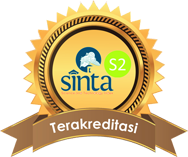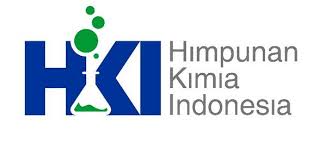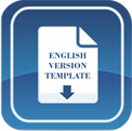Innovative Learning Approaches: Quantum Chemistry Board Games for Education and Computational Thinking Strategies
DOI:
https://doi.org/10.15575/jtk.v9i1.31609Keywords:
board games, computational thinking, electron card, proton card, quantum chemistryAbstract
Computational thinking (CT) learning is becoming increasingly important in today's education in developing critical thinking and problem-solving skills. The development of board games is one of the techniques used to hone problem-solving skills by integrating CT into the learning process. Through this innovative learning approach, abstract concepts in atomic structure and the periodic system of elements are integrated into components of the game. The research aims to improve students' critical thinking and problem-solving skills in challenging chemistry content such as quantum numbers. This research includes the design, development, and implementation stages of board games in learning. The N-gain score of 0.7 is achieved, indicating an improvement in the effectiveness of learning chemistry subjects on atomic structure and the periodic system of elements through the designed board games. In addition, students provide positive feedback regarding engagement and interest in learning through this interactive approach. These results indicate that the use of CT-integrated board games can be an effective tool for teaching chemistry materials at the high school level while promoting students' CT skills. Well-designed board games can be used as effective learning tools to improve student's critical thinking and problem-solving skills in quantum numbers.
References
Anggraini, D. M., Yuliandari, R. N., Mubarok, H., & Nisak, N. A. D. C. (2023). Application of numerical literacy to elementary school students. Proceedings of the International Conference on Islamic Education 2021. Retrieved from https://proceeding.iainkudus.ac.id/index.php/ICIE/article/view/578
Annetta, L. A., Minogue, J., Holmes, S. Y., & Cheng, M.-T. (2009). Investigating the impact of video games on high school students’ engagement and learning about genetics. Computers & Education, 53(1), 74-85. https://doi.org/10.1016/j.compedu.2008.12.020
Chowdhury, P. (2022). Learners’ misconceptions in periodic table: An analysis of cognitive skills development. Universal Journal of Educational Research, 10(1), 57–66. Retrieved from https://api.semanticscholar.org/CorpusID:245969483
Doleck, T., Bazelais, P., Lemay, D. J., Saxena, A., & Basnet, R. B. (2017). Algorithmic thinking, cooperativity, creativity, critical thinking, and problem solving: Exploring the relationship between computational thinking skills and academic performance. Journal of Computers in Education, 4(4), 355-369. https://doi.org/10.1007/s40692-017-0090-9
Ekasari, N. (2021). Penerapan metode circuit learning untuk meningkatkan hasil belajar siswa. Jurnal Pendidikan Indonesia, 2(2), 272-283. Retrieved from https://japendi.publikasiindonesia.id/index.php/japendi/article/view/69
Gee, J. P. (2003). What video games have to teach us about learning and literacy. Computers in Entertainment (CIE), 1(1), 20. https://doi.org/10.1145/950566.950595
Govender, I. (2022). Research status in computational thinking in STEM education. In Advances in Research in STEM Education, IntechOpen. https://doi.org/10.5772/intechopen.104472
Hamari, J., Shernoff, D. J., Rowe, E., Coller, B., Asbell-Clarke, J., & Edwards, T. (2016). Challenging games help students learn: An empirical study on engagement, flow, and immersion in game-based learning. Computers in Human Behavior, 54, 170-179. https://doi.org/10.1016/j.chb.2015.07.045
Kim, S., Raza, M., & Seidman, E. (2019). Improving 21st-century teaching skills: The key to effective 21st-century learners. Research in Comparative and International Education, 14(1), 99-117. https://doi.org/10.1177/1745499919829214
Kusno, K., & Setyaningsih, E. (2021). Self-regulated learning of mathematics for teacher prospectives in the development of student e-worksheets. Jurnal Teori dan Aplikasi Matematika, 5(1), 205-215. https://doi.org/10.31764/jtam.v5i1.3911
Labusch, A, Eickelmann, B., & Venneman, M. (2019). Computational thinking processes and their congruence with problem-solving and information processeing. In Computational Thingking Education, 65-78, Springer. https://doi.org/10.1007/978-981-13-6528-7_5
Leonard, J., Buss, A., Gamboa, R., Mitchell, M., Fashola, O. S., Hubert, T., & Almughyirah, S. (2016). Using robotics and game design to enhance children's self-efficacy, STEM attitudes, and computational thinking skills. Journal of Science Education and Technology, 25, 860-876. https://doi.org/10.1007/s10956-016-9628-2
Limbong, N., Herlina, K., Maulina, H., & Abdurrahman. (2023). Problem-solving and computational thinking practices: Lesson learned from the implementation of ExPRession model. Jurnal Ilmu Pendidikan Fisika, 8(1), 1-9. Retrieved from https://journal.stkipsingkawang.ac.id/index.php/JIPF/article/view/3042
Martins, A. R. Q., Miranda, G. L., & da Silva Eloy, A. A. (2020). A systematic literature review on self-assessment of young people's computational thinking. Renote: Revista Novas Tecnologias na Educação, 18(1). https://doi.org/10.22456/1679-1916.106041
Mendrofa, N. K. (2024). Computational thingking skills in 21st century mathematics learning. Jurnal Ilmiah Ilmu Pendidikan, 7(1), 792-801. https://doi.org/10.54371/jiip.v7i1.3780
Mulyanto, A., Niwanputri, G. S., Arifiansyah, F., Ramadhani, N. R., Rusyda, Y., & Al-Khadafi, M. R. (2020). Computational thinking learning and teaching guide for primary and secondary schools in Indonesia. Bandung: Artificial Intelligence Center ITB.
Ozden, C., & Tezer, M. (2018). The effect of coding teaching on students' self-efficacy perceptions of technology and design courses. Sustainability, 10(10), 3822. https://doi.org/10.3390/su10103822
Papastergiou, M. (2009). Digital game-based learning in high school computer science education: Impact on educational effectiveness and student motivation. Computers & Education, 52(1), 1-12. https://doi.org/10.1016/j.compedu.2008.06.004
Rohim, D. C. (2021). Konsep asesmen kompetensi minimum untuk meningkatkan kemampuan literasi numerasi siswa Sekolah Dasar. Jurnal VARIDIKA, 33(1), 54–62. https://doi.org/10.23917/varidika.v33i1.14993
Squire, K., & Jenkins, H. (2003). Harnessing the power of games in education. Insight, 3, 5-33. Retrieved from https://api.semanticscholar.org/CorpusID:131775124
Sugiyono. (2021). Metode penelitian kuantitatif kualitatif dan R&D. Bandung: Alfabeta.
Tegeh, I. M., Jampel, I. N., & Pujawan, K., (2014). Metode penelitian pengembangan. Yogyakarta: Graha Ilmu
Tekdal, M. (2021). Trends and development in research on computational thinking. Education and Information Technologies, 26(5). https://doi.org/10.1007/s10639-021-10617-w
Tresnawati, D., Setiawan, R., Fitriani, L., Mulyani, A., Rahayu, S., Nasrullah, M. R., Septiana, Y., Siti Fatimah, D. D., Satria, E., Gunadhi, E., Latifah, A., & Sutedi, A. (2020). Membentuk cara berpikir komputasi siswa di Garut dengan tantangan bebras. Jurnal PkM MIFTEK, 1(1), 55-60. https://doi.org/10.33364/miftek/v.1-1.55
Tsarava, K., Moeller, K., & Ninaus, M. (2018). Training computational thinking through board games: The case of crabs & turtles. International Journal of Serious Games, 5(2), 25–44. https://doi.org/10.17083/ijsg.v5i2.248
Ubaidullah, N. H., Mohamed, Z., Hamid, J., SUlaiman, S. (2021). Improving novice studnets' computational thinking skills by problem-solving and metacognitive techniques. International Journal of Learning, Teaching and Educational Research, 20(6), 88-108. https://doi.org/10.26803/ijlter.20.6.5
Wang, C., Shen, J., & Chao, J. (2022). Integrating computational thinking in STEM education: A literature review. International Journal of Science and Mathematics Education, 20, 1949-1972. https://doi.org/10.1007/s10763-021-10227-5
Wangenheim, C. G. V., Araújo E Silva De Medeiros, G., Missfeldt Filho, R., Petri, G., Da Cruz Pinheiro, F., F. Ferreira, M. N., & Hauck, J. C. R. (2019). SplashCode - A board game for learning an understanding of algorithms in middle school. Informatics in Education, 18(2), 259–280. https://doi.org/10.15388/infedu.2019.12
Wing, J. (2008). Computational thinking and thinking about computing. Philosophical Transactions of the Royal Society A: Mathematical, Physical, and Engineering Sciences 36(6), 3717–3725. https://doi.org/10.1098/rsta.2008.0118
Wirawan, A. (2022). Yuk bikin board game edukasi. Jakarta: Mekanima Inspira Nagara.
Downloads
Published
How to Cite
Issue
Section
Citation Check
License
Authors who publish with this journal agree to the following terms:
- Authors retain copyright and grant the journal right of first publication with the work simultaneously licensed under a Creative Commons Attribution-ShareAlike that allows others to share the work with an acknowledgement of the work's authorship and initial publication in this journal.
- Authors are able to enter into separate, additional contractual arrangements for the non-exclusive distribution of the journal's published version of the work (e.g., post it to an institutional repository or publish it in a book), with an acknowledgement of its initial publication in this journal.
- Authors are permitted and encouraged to post their work online (e.g., in institutional repositories or on their website) prior to and during the submission process, as it can lead to productive exchanges, as well as earlier and greater citation of published work (See The Effect of Open Access).









